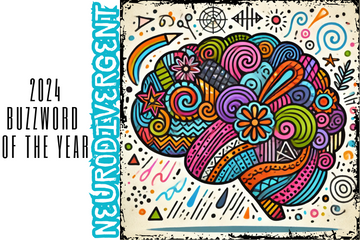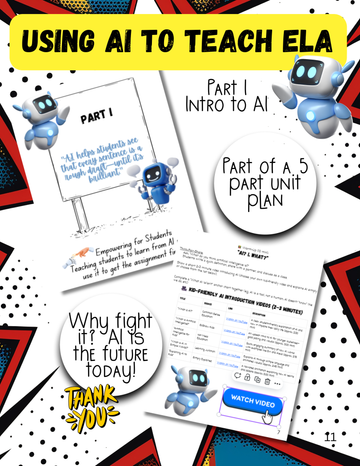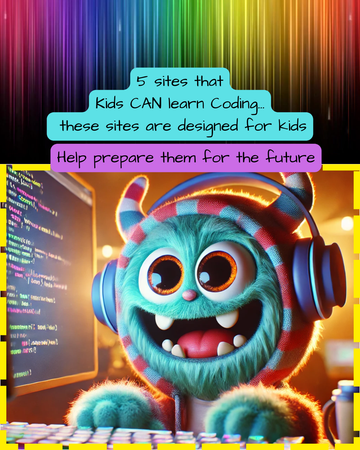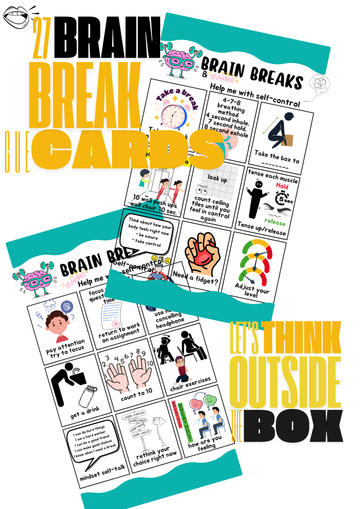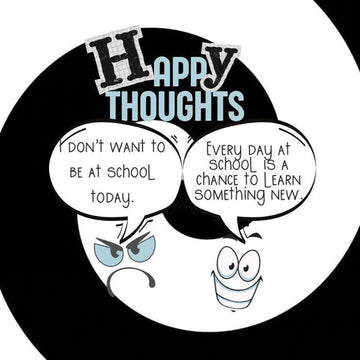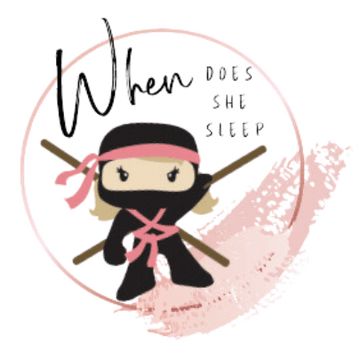Neurodivergent the New Buzz Word
Neurodivergent: The Buzzword That’s Changing How We See Brains
And the Award for Buzzword of the year goes to—"neurodivergent." It has become the new word everyone’s talking about. Whether it’s popping up in social media captions, parent-teacher conferences, or professional development in schools or the workplace, it’s everywhere. But what does it mean, why is everyone using it, and why should you care? Let’s break it down in a way that won’t tax the neurotypical brain.
So, What Does Neurodivergent Even Mean?
Think of neurodivergent as a fancy way of saying “brains that work differently.” It’s an umbrella term that includes many labels such as AD/HD, autism, dyslexia, dyspraxia, Tourette syndrome, and even mental health issues like anxiety and depression. Instead of labeling these differences as problems that need “fixing,” the neurodivergent movement says, “Hey, these are just different ways of thinking and being human.”
It’s like the world is finally realizing not all brains are built the same—and that’s okay. Treating all student behavior equally without considering the underlying causes can have serious and lasting repercussions, particularly for neurodivergent students. When behaviors driven by neurological differences—such as impulsivity, sensory overload, or difficulty with self-regulation—are punished the same way as intentional rule-breaking, students can internalize feelings of shame, frustration, or inadequacy. This misunderstanding can damage their self-esteem, create resentment toward authority figures, and lead to disengagement from learning. Over time, these experiences can contribute to long-term mental health challenges, diminished academic success, and a strained relationship with education and even family. It’s essential to approach behavior with empathy and context, recognizing that fair treatment isn’t always identical treatment.
Why Is Neurodivergent the New Buzzword?
The Power of the Internet
Social media has been a game-changer. People with ADHD, autism, and other neurodivergent traits are sharing their experiences on TikTok, Instagram, and Twitter—and honestly, they’re doing it in a way that’s relatable, sometimes funny, and often totally eye-opening. Seeing someone describe what it’s like to live with sensory overload or hyperfocus can make you go, “Oh, that makes so much sense now!” Since neurodivergence encompasses a wide spectrum of behaviors, so you might relate to some traits, even without ever being diagnosed with anything. After all, everyone has their issues and/or challenges. So why is it so hard to grasp that others experience these same challenges on a much greater scale, often with less capacity to self-regulate? Understanding this can lead to more empathy and support for those navigating life with heightened struggles. Particularly in school settings, differentiation should include providing appropriate strategies when dealing with behaviors. Applying the same consequence or rewards to different students assumes they have the same capacity to control their behavior, which is not always the case. While Student A may be able to learn from the consequences or control themselves to receive rewards, Student B receives punishment for something they couldn’t fully control. The obvious lack of rewards only compounds their internal frustrations. This highlights the need for individualized approaches that consider a student’s unique needs and challenges, focusing on support rather than punishment.
The Workplace Revolution
Companies are waking up to the fact that neurodivergent employees bring something special to the table. Creativity, out-of-the-box problem-solving, laser focus—these aren’t just skills; they’re superpowers. Big players like Microsoft and JPMorgan Chase are even creating hiring programs to tap into that talent. Finally, the workplace is realizing that different doesn’t mean less—it means valuable.
Schools Are Catching On
Remember when school was all about sitting still, following rules, and memorizing stuff? Yeah, that doesn’t work for everyone. Teachers are learning that flexible classrooms, sensory-friendly spaces, and tailored learning plans can make a world of difference for neurodivergent students. Because surprise: Not every kid learns the same way!
Mental Health is Part of the Puzzle
The growing conversation around anxiety, depression, and burnout has brought greater awareness to the fact that not all brains function the same way. It’s helping people recognize that neurodivergence goes beyond learning styles or behaviors—it encompasses how we emotionally and mentally process the world around us. Understanding these differences, as well as how our bodies respond to stress and challenges, is crucial. By prioritizing proactive approaches to mental health—both for ourselves and for the next generation—we can foster resilience, empathy, and well-being for all.
Opportunities and Challenges
What’s Great:
- Representation: Neurodivergent voices are getting louder, and people are finally listening.
- Inclusion: From classrooms to boardrooms, more people recognize that accommodating neurodivergence isn’t just nice—it’s necessary.
- Smashing Stigma: Instead of seeing differences as “weird” or “wrong,” we’re starting to embrace them as just another way of being human.
What’s Tricky:
- Overuse and Misuse: Like any buzzword, “neurodivergent” can sometimes get thrown around without much thought. Not every quirky trait makes someone neurodivergent, and using it casually can water down its importance.
- Tokenism: Awareness is great, but it needs to lead to real action. It’s not enough to slap “neurodiversity” on a hiring flyer if you’re not actually making the classroom or the workplace accessible and supportive.
Why Words Matter
The rise of “neurodivergent” shows how powerful language can be. Words shape how we see the world—and how we treat people. Using this term is helping to shift the narrative from “What’s wrong with you?” to “How can we support you?”
But let’s be real: A buzzword alone isn’t going to fix everything. Pairing the word with real change—like better accommodations, more inclusive policies, and genuine empathy—is what’s going to make a difference.
Final Thoughts
“Neurodivergent” isn’t just a trend; it’s part of a shift in understanding that human brains are beautifully varied. It’s reminding us to ditch old norms and embrace new ways of thinking, working, and living.
So, next time you hear someone use the word, take a moment to appreciate the shift it represents. Whether you’re neurotypical, neurodivergent, or just learning about all this, one thing is clear: The world gets a little better every time we celebrate the ways we’re different—and find ways to make space for everyone to thrive.
Buzzword or not, this is a movement we can all get behind.


